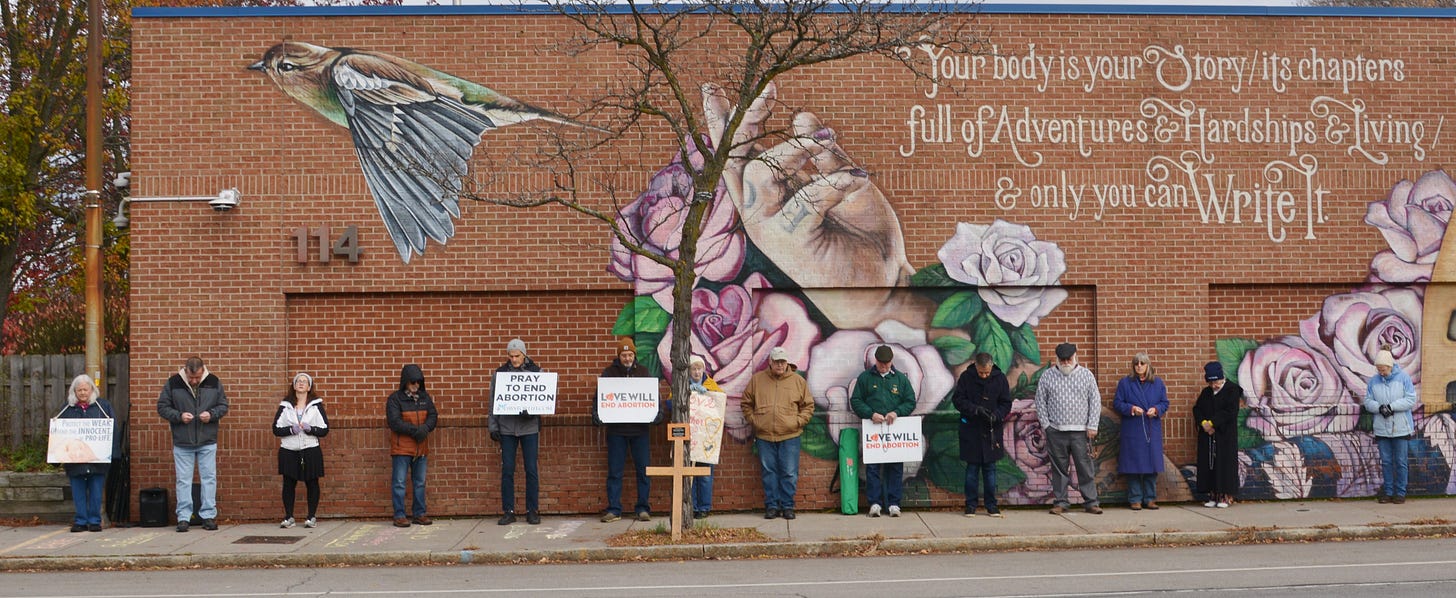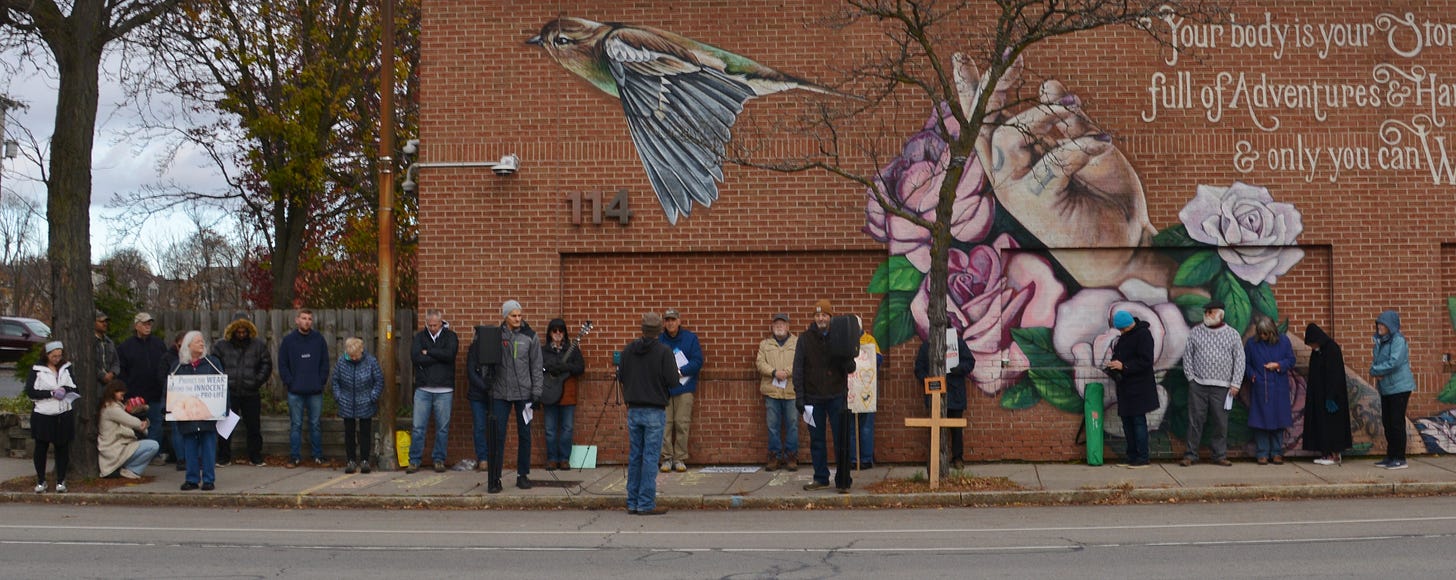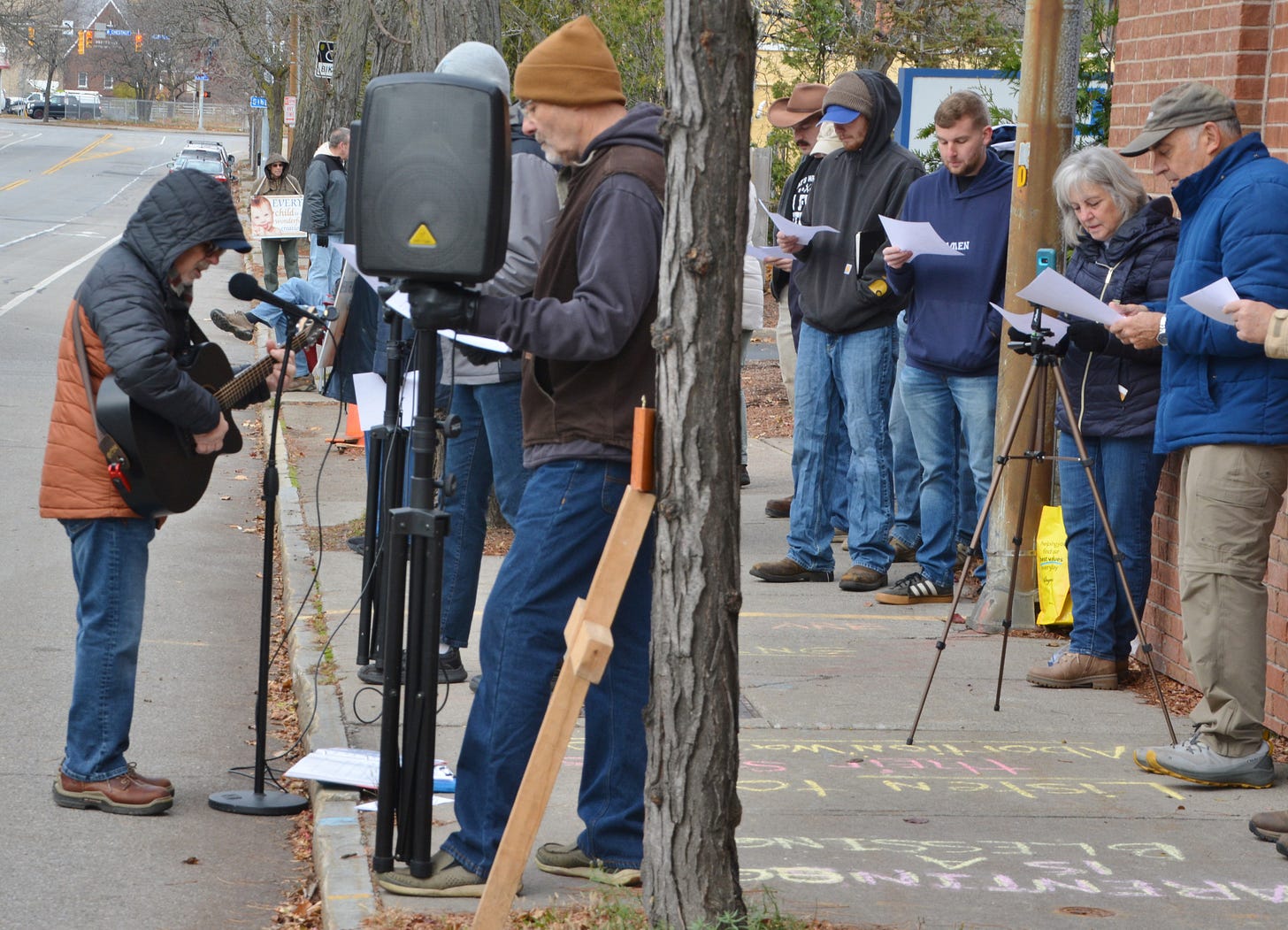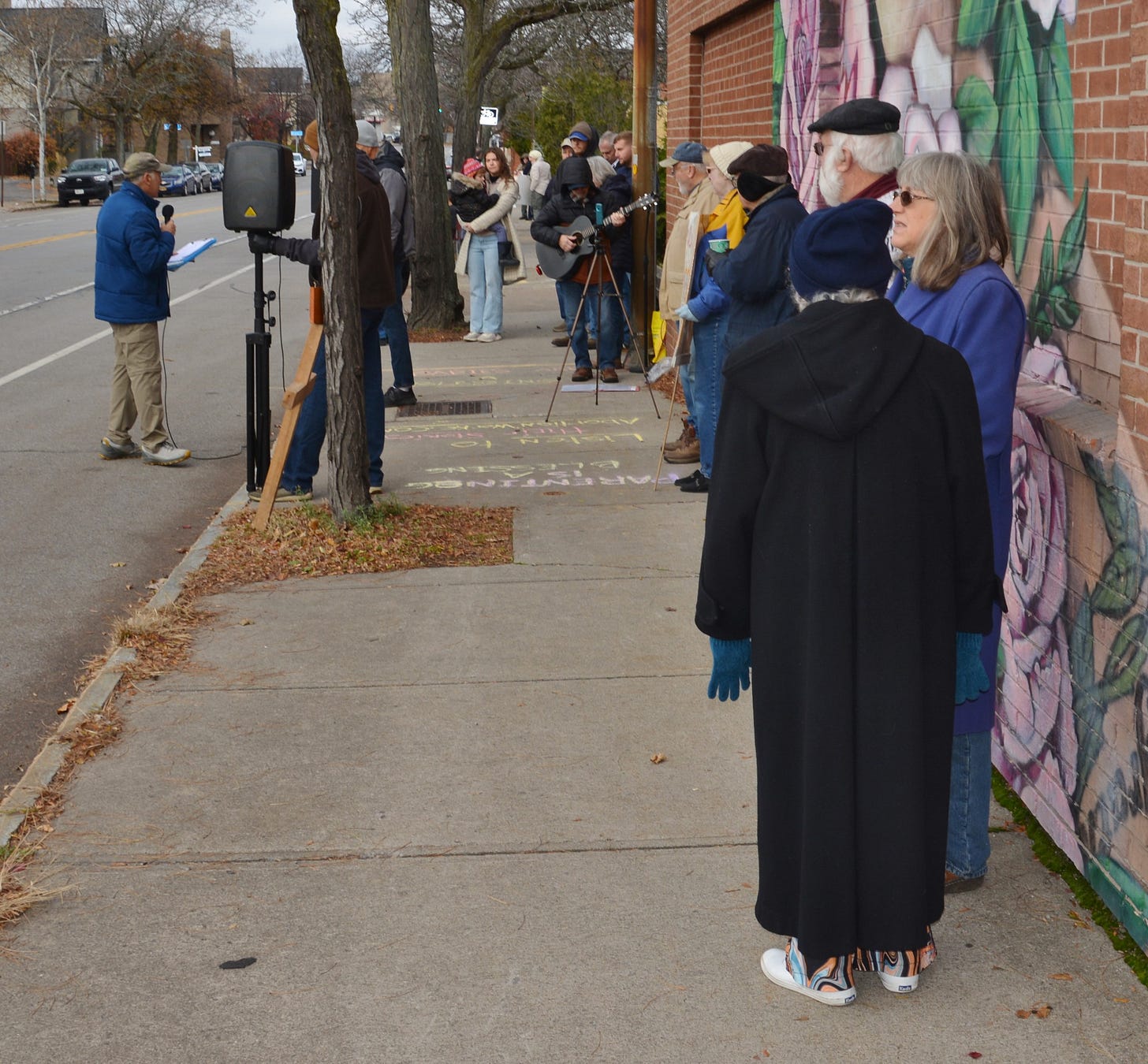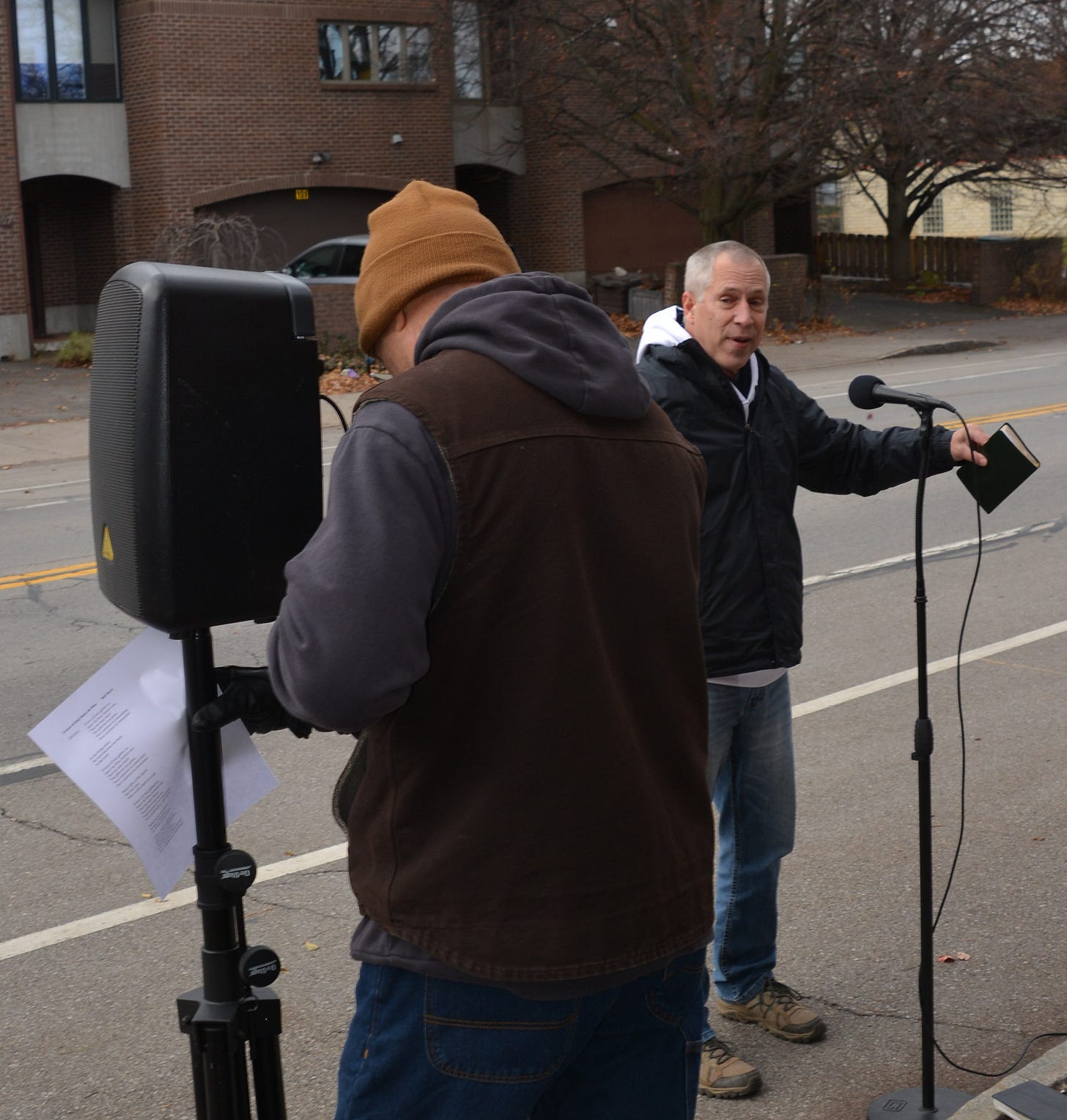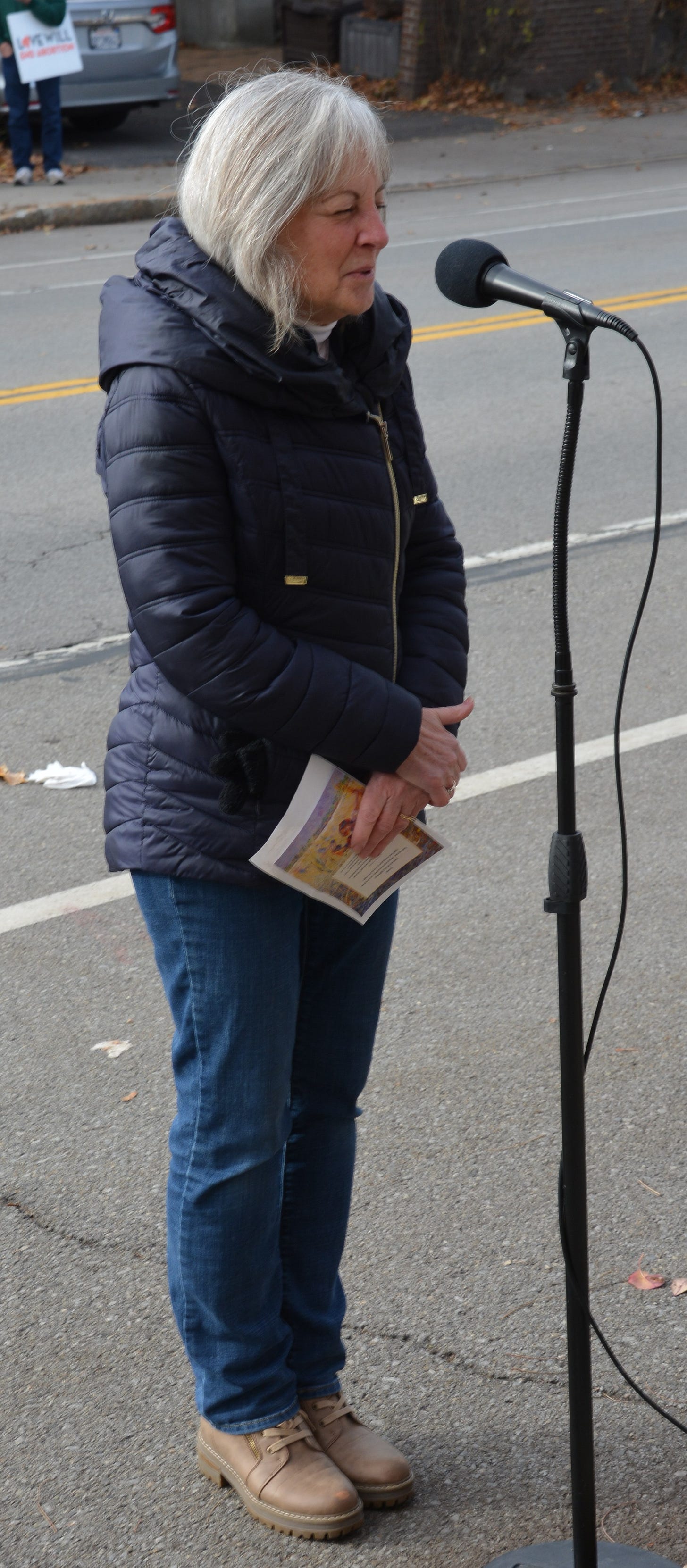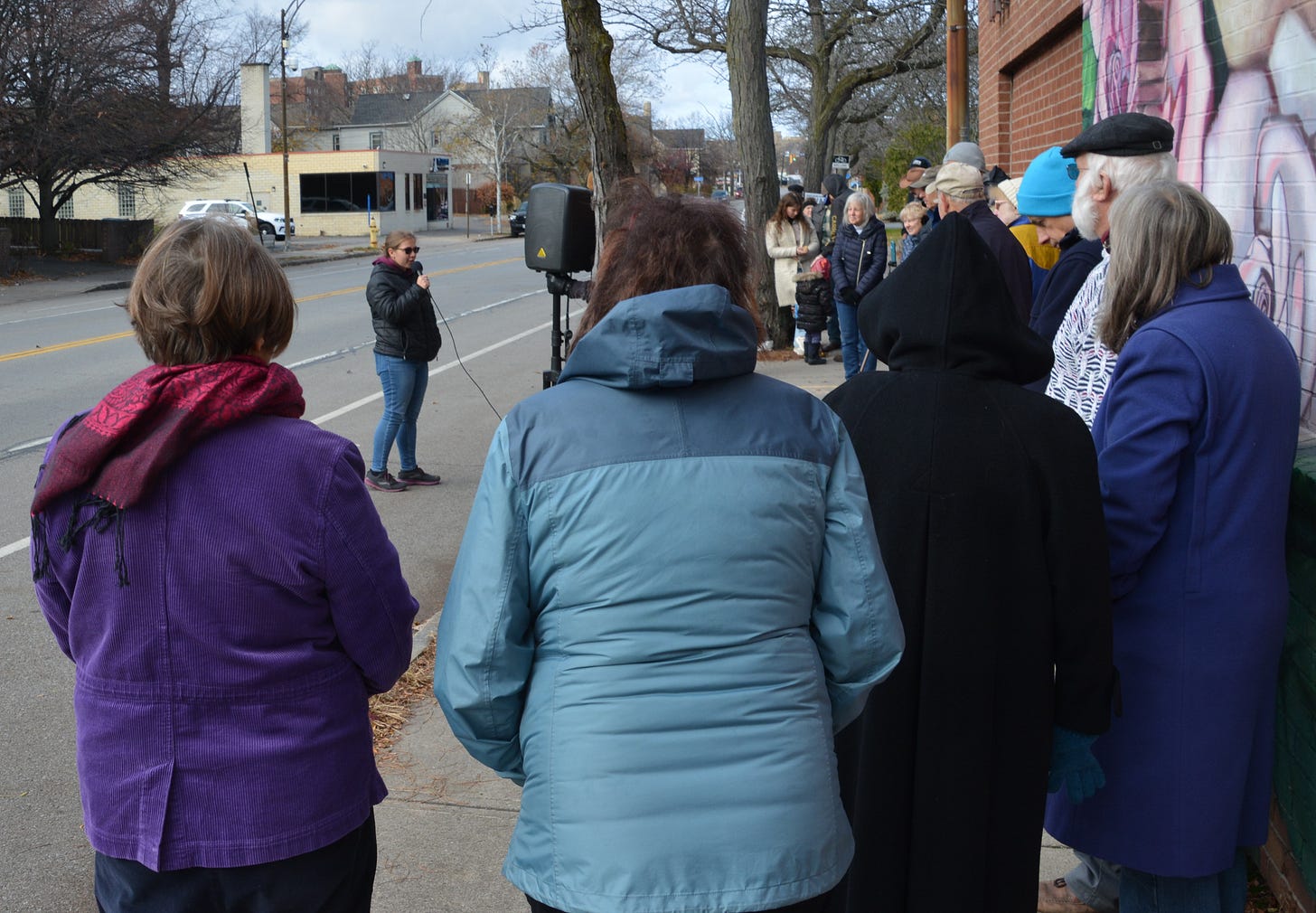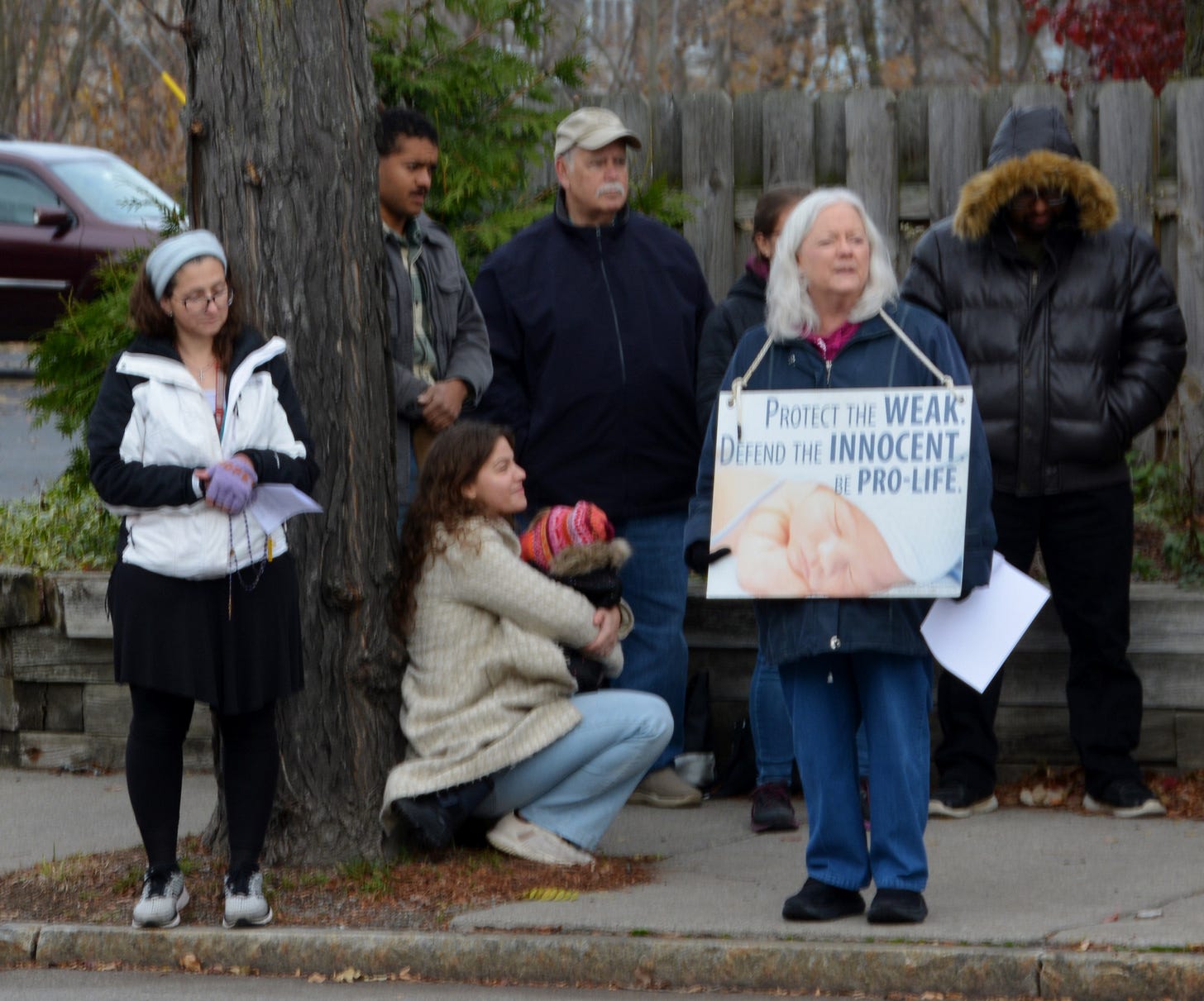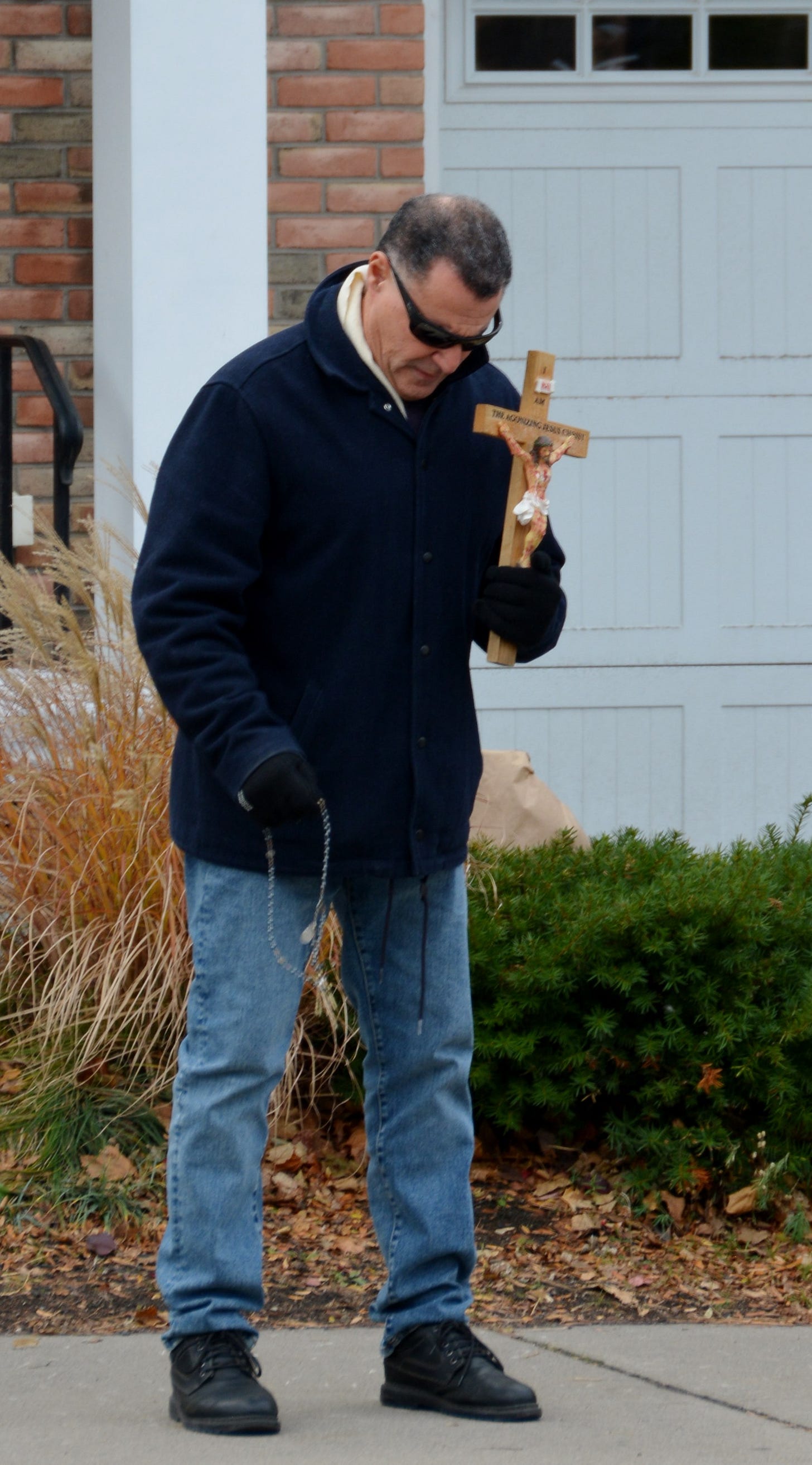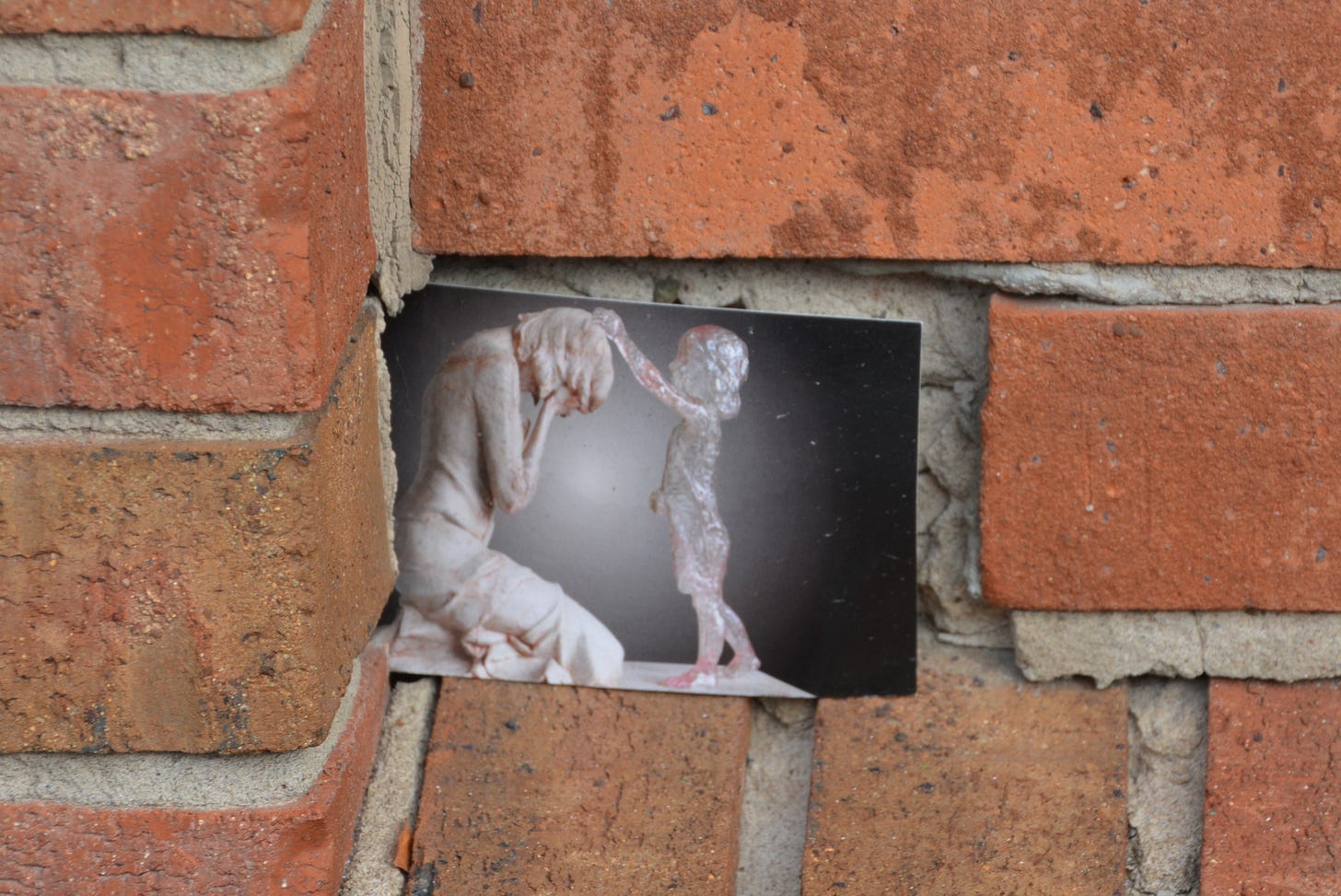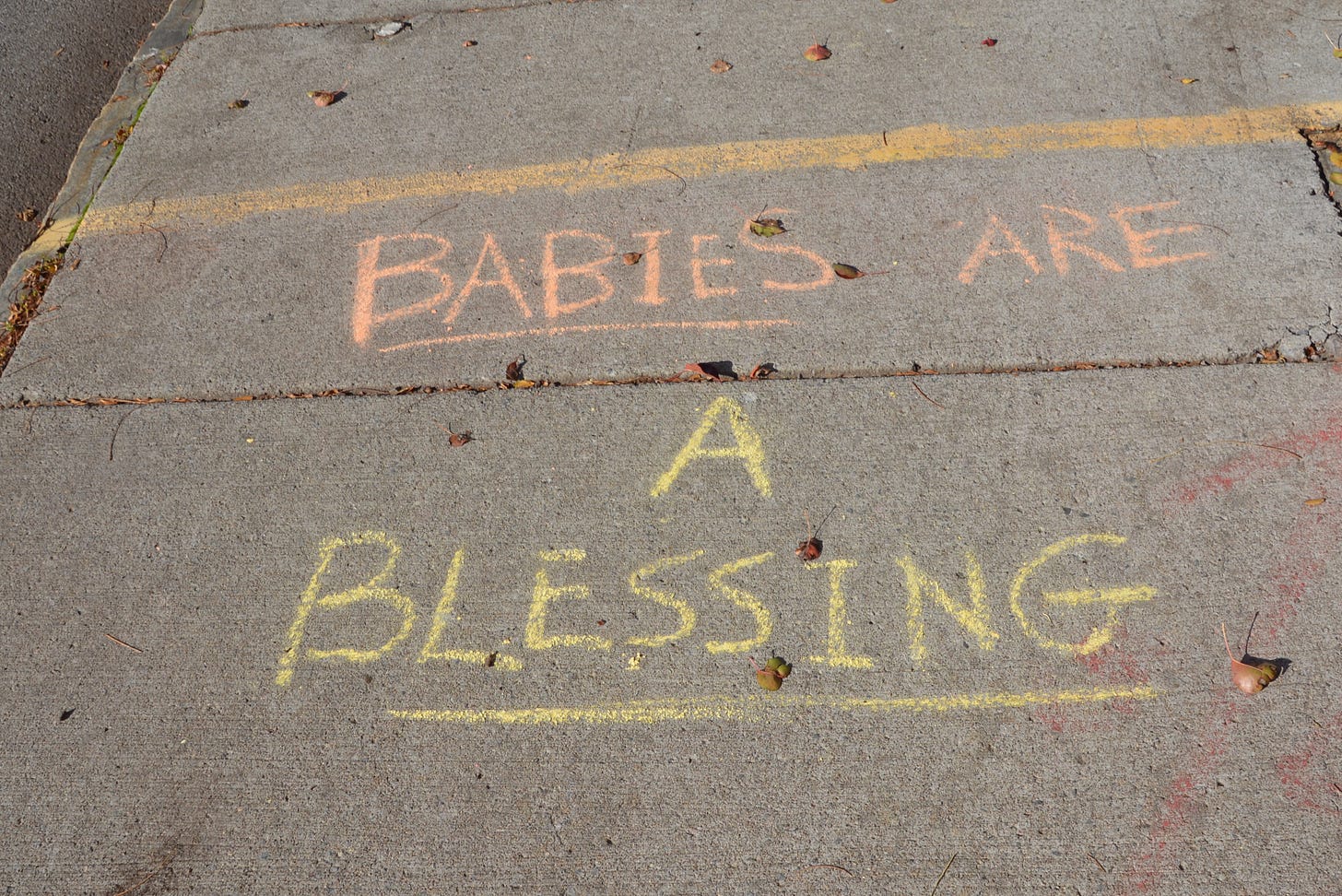Monday, December 22, 2025
Sunday, December 21, 2025
Christmas Poem for 2025
has added much not there that holy night.
The cast of those who played a role has been
expanded as faith and fancy deemed right.
That night the star was there to light and guide
in Bethlehem’s sky, as were angel choirs,
with stable, Mary and Joseph inside,
and the shepherds down from their hillside fires.
The Magi and Herod’s bloody soldiers
arrived later. Creative minds supplied
ass, kneeling ox, lambs, Santa, bowing trees,
drummer boy, midwife, and others beside.
Whoever was there, all have cause to sing,
for that day we welcomed our God and King.
Thursday, December 4, 2025
The Autobiography of Santa Claus
Friday, November 28, 2025
Syndicated columnists
Monday, November 24, 2025
Stand Together For Life, November 2025
The event always begins with a Rosary by the Catholics.
They are then joined by Protestant brothers and sisters.
The featured speaker this month was Tim Archer, Board President of Care Net of Greater Oleans (a nearby county). Care Net is a women’s center that provides free, onsite pregnancy services, resources and support.
We also heard form Jan, one of the leaders of the local Mom Mentors, a group that provides all sorts of social and material aid for women. That aid includes baby showers, food, clothing, furniture, rides, listening even in the middle of the night, and more.
We also heard form a woman from Syracuse about pro-life efforts there (Alas, I did not catch her name.)
Someone stuck this image above in a gap in Planned Parenthood’s wall. Meanwhile, some folks who had been there before the event left messages chalked on the sidewalk like this one -
The event ended with participants placing their hands on Planned Parenthood’s street-side wall and praying for the mothers, the fathers, the babies, and the workers.
We will continue until legal abortion ends.
Pax et bonum
Thursday, November 20, 2025
Political poems
For my haiku group we were to bring in some of our political haiku/senryu. "Political" was defined as including not just actual elections or candidates, but also social issues subject to political debate.
Here are the ones I brought:
steady cold rain
election results
come trickling in
blood on the pavement
mother distracts child
with an old folk song
searcher hesitates
beneath the rubble
an overturned crib
outside the clinic
unmothered mothers slowly
walk to waiting cars
crow on a bare branch
outside the clinic
car door slams
walking in the woods
noticing all the mushrooms -
August 6
a break in the clouds
gave way to that sunrise –
Nagasaki
the morning prayers
rose heavenward that day –
Nagasaki
at Hiroshima
some dead left memorials
shadows on the wall
I've written other political poems that more directly focus on candidates, primarily poems in the clerihew format. I say "clerihew format" because they are not true clerihews. They lack the silliness, the whimsy that true clerihews have, and are much more polemical and satirical than true clerihews should be.
Some come closer to the form.
Assistant Coach Tim Walz
was enjoying some spaghetti and meatballs,
but then got a sick feeling in his belly
when an ad for tampons came on the telly.
Bernie Sanders
gets uneasy whenever he spots chameleons and salamanders.
He yells and waves his hands above his head
because he knows if they get near him they'll turn red.
Chris Cuomo
hates to be called "Fredo."
Still, he turns down Andy's offers to take
him fishing out on a lake.
Vermin Supreme
awoke from a bad dream.
In it, Democratic candidates at a joint ceremony
promised everyone a free pony.
Some of the others just don't make it as true clerihews.
Donald Trump
on the stump
will almost always spout a platitude
or something rude.
The eyes of former Vice President Biden
suddenly began to widen.
"Wait, you mean now that they say I've won,
people actually expect me to get something done???"
Former Vice President Joe Biden
is content to let gender definitions widen.
He has himself long used the trick
of identifying as a devout Roman Catholic.
Washington Archbishop Wilton Gregory
says, "Communion for cafeteria Catholic Biden is fine by me.
After all, I always try to enable
whenever I am able."
Former Vice President Joe Biden
watches Ukraine, the border, inflation, and his poll numbers slidin'.
With so much at stake
it's time for an ice cream break.
Former Vice President Joe Biden
caused some Royal eyes to widen.
His press people sighed, for from the start,
they've been battling accusations he's just an old fart.
Each encounter with Joe Biden
reveals what his handlers have been hidin':
Beneath that thinning hair,
there's less and less there there.
Good Jimmy Carter,
when it comes to presidents was one of the smarter.
Historians rank his presidency pretty low,
but it’s looking better these days thanks to “Scranton Joe.”
I don't know if J.D. Vance
has ever been to France,
but unlike Walz he doesn't lack
service to the nation in Iraq.
New York AG Letitia James
targeted Trump with legal games.
We might just see her smirking less
now that she faces her own legal mess.
Attorney General Letitia James
is fond of playing games.
Her latest was attending a trial and practicing her smirk
instead of showing up at the office to work.
Fani Willis
used Nathan Wade for some carnal bliss,
What drew him to her is not plain to see;
perhaps money and the odor of mendacity?
Fani Willis
with Nathan Wade sought illicit bliss.
Part of her appeal may have been her capacity
for mendacity.
.
Elizabeth Warren
campaigned in the restaurant of a Salvadoran.
When she tasted a pupusa she said,
"Why, this is just like my mother's Cherokee fry bread."
Senator Cory Booker
is more than a side-looker.
After all, as he told us,
he is Spartacus.
Ben Carson
has never been accused of committing arson.
That didn't stop Politico
from saying, "He may have, you know."
New York Governor Andrew Cuomo
set out to find a living dodo.
The closest he came, in the end,
were a couple of hosts at CNN.
I have a number of other political alleged clerihews, but they are so bad - given some of the ones I posted above you get an idea how bad they are - they are fit only for Twitter (X). But since I don't have a Twitter account, I'll spare the public and not post them!
Sunday, November 2, 2025
All Souls Day
Saturday, October 25, 2025
Some Scifaiku, Horrorku, And Related Poetry
Creative Solution
A doctor from South Aldersgate,
when asked why he never does date,
said, "Dating’s a pain,
and so I’ll refrain.
Besides, I can make my own mate."
despite some warnings
he started the new device
and
dental mishap
vampire faces centuries
of just blood pudding
at his sentencing
vampire grows even paler -
life without parole
mining rights sold
the full moon becomes
only a crescent
Halloween costume -
werewolf considers options
but full moon decides
time travel mishap -
alternative history
no longer fiction
she suddenly recognized
the werewolf's cologne.
Prolific Stephen King
can make horror out of anything.
His wife fears what he'd do
if he tried to barbecue.
apocalypse comes -
our final embrace will last
an eternity
through the rubble
a three-legged dog carries
a tibia
robot's Valentine
card bears the image of a
mechanical heart
supernova -
on some planet are wise ones
following its light?
Life form,
so alien
people run from it in
terror, is itself so aghast
it flees.
on the asteroid
slow dancing
in fading Earthlight
trying to recall
the species at the cantina -
pregnancy test
alien banquet -
host's toothy smile reveals bits
of missing crewman
two moons
rise above the
lunatic asylum
inspiring the Martian inmates
to howl
snow on snow on snow –
spring on the new colony
still two years away
the calculations
off by a decimal point -
debris field explained
researcher turns on
interdimensional door -
Who’s that knocking?
blind date takes
unexpected turn
her tattoos move
watching as the clone
learns to ride a bicycle -
sense of déjà vu
A doctor from South Aldersgate (limerick) Weird Tales August/September 2006
alien banquet - Random Planets 2019
apocalypse comes – Scifaikuest AUG 2021 PRINT
at his sentencing - Scifaikuest November 2023
blind date takes - Scifaikuest November 2023
Clouds shrouding (saturne) - Scifaikuest February 2023
Halloween costume (werewolf) – Scifaikuest online, February 2023
Last words (saturne) - Scifaikuest February 2023
“life form” (cinquain) in Scifaikuest May 2018
mining rights sold” Random Planets 2019
mining rights sold Rochester Area Haiku Group 2020 Members’ Anthology
mirror with a painting (vampire teen) – Failed Haiku Volume 7 Issue 74 (February 2022)
New colonist (saturne) - Scifaikuest February 2023
on the asteroid - Scifaikuest February 2019
researcher turns on - Scifaikuest November 2023
Robot’s valentine - Scifaikuest, February 2017
snow on snow on snow – Scifaikuest AUG 2021 ONLINE
Supernova - Scifaikuest – online – February 2017
the calculations Scifaikuest AUG 2021 ONLINE
The thirsting (saturne) - Scifaikuest February 2023
through the rubble - Scifaikuest AUG 2021 PRINT
time travel mishap – Scifaikuest online, February 2023
trying to recall - Skifaikuest February 2019
trying to recall – Failed Haiku Volume 7 Issue 74 (February 2022)
two moons (cinquain) – Random Planets 2019
watching as the clone – Failed Haiku Volume 7 Issue 74 (February 2022)
Thursday, October 23, 2025
Weighing In
the patron of all those who suffer
with stomach ailments and obesity.
You are also called upon as a helper
for all those attempting to diet and lose weight.
Please intercede for me today
and help me to control
my desires and compulsions,
so that I may fix my appetite
on the glory of heaven.
Amen.
Monday, October 20, 2025
It'll Come To Me ...
Wednesday, October 15, 2025
Once More, Ancestry Updates
Ireland (Northern Ireland and - new - Ulster): 41%
England and Northwestern Europe: 38%
Denmark (new) 10%
Scotland: 6%
Iceland (a new region!): 3%
Germanic Europe: 2%
Here are other previous results:
August 2022.
Ireland 42%
England & Northwestern Europe 35%
Scotland 16%
Sweden & Denmark 7%
May 2022
Ireland 39%
England & Northwestern Europe 29%
Scotland 28%
Sweden & Denmark 4%
So now more Irish, English/Western Europe, and Sweden/Denmark, less Scottish. And overall less Celtic.
They have updated multiple times as they have gotten more people in their data base -
September 2021
Scotland - 57%
Ireland - 33% (with ties to Donegal)
England and Northwestern Europe - 10%.
2020
Scotland - 54%
Ireland (with strong links to Donegal) - 29%
England and Northwestern Europe - 13%
Wales - 3%
Norway - 1%
2018
Ireland/Scotland/Wales - 58 %.
Great Britain - 36 %.
Scandinavia is now Sweden, and dropped to just 4 %.
Germanic Europe - 2 %.
2014
Ireland - 56 %
Scandinavia - 16 %
Great Britain - 10 %
Iberian Peninsula - 8 %
Western Europe - 5 %
A few odd traces - 3 %











